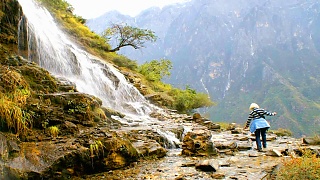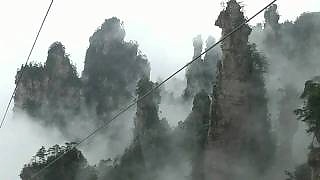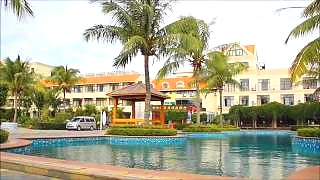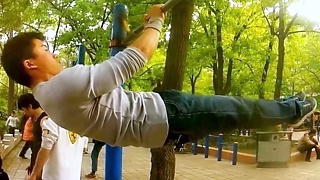
|
With Walk East ...
With Seiu Travel ...
Visitor Guide to TaiYuan City, ShanXi Province
Overview
TaiYuan, the capital city of ShanXi Province, is a fascinating blend of ancient history and modern development. Known for its rich cultural heritage, TaiYuan offers visitors a glimpse into China's past while also showcasing its rapid modernization.
Getting There
By Air: TaiYuan WuSu International Airport (TYN) serves the city with both domestic and international flights. It is located about 15 kilometers from the city center, and you can reach downtown by taxi, airport shuttle, or public bus.
By Train: TaiYuan Railway Station and TaiYuan South Railway Station connect the city with major destinations across China, including Beijing, Xi'an, and Shanghai. High-speed trains offer convenient and quick travel options.
By Bus: Long-distance buses from nearby cities and provinces also provide access to TaiYuan. The main bus stations in TaiYuan are TaiYuan Long-Distance Bus Station and TaiYuan West Bus Station.
Getting Around
Public Transport: TaiYuan has an extensive public bus network and a developing metro system, making it easy to navigate the city.
Taxis: Taxis are readily available and relatively inexpensive. Ride-hailing apps like DiDi are also widely used.
Biking: Bike-sharing services are popular and provide a convenient way to explore the city at your own pace.
Main Attractions
JinCi Temple
JinCi Temple, located about 25 kilometers southwest of TaiYuan, is a historic site with beautiful architecture, ancient trees, and intricate carvings. The temple, dating back over 1,400 years, is dedicated to the worship of Prince Shuyu of the Zhou Dynasty.
ShanXi Museum
ShanXi Museum, one of China's most important museums, offers a comprehensive look at the history and culture of ShanXi Province. The museum's exhibits include ancient relics, artifacts from the Silk Road, and displays on ShanXi's rich coal mining history.
TaiYuan Ancient City Wall
The TaiYuan Ancient City Wall is a significant historical landmark that reflects the city's ancient military architecture. Portions of the wall have been restored, and visitors can walk along it to enjoy panoramic views of the city.
Fenhe Park
Fenhe Park, situated along the Fen River, is a large urban park offering beautiful landscapes, walking paths, and recreational facilities. It's a great place to relax, enjoy nature, and experience the local lifestyle.
Twin Pagoda Temple
The Twin Pagoda Temple, also known as Yongzuo Temple, features two impressive pagodas dating back to the Ming Dynasty. The temple is a serene spot with beautiful gardens and ancient architecture.
Local Cuisine
TaiYuan offers a variety of local and regional dishes. Here are some must-try foods:
ShanXi Sliced Noodles (DaoXiaoMian): A famous local dish made with hand-sliced noodles, usually served with a savory broth and various toppings.
Vinegar Culture: ShanXi is known for its aged vinegar, which is a staple in many local dishes. Be sure to try dishes that highlight this unique flavor.
ShanXi Meat Patties (RouJiaMo): Often referred to as the "Chinese hamburger," these meat-filled buns are a delicious and popular street food.
Fenhe River Fish: Fresh fish from the Fen River, prepared in a variety of ways, is a local specialty.
Shopping
Liuxiang Pedestrian Street: A bustling shopping area offering a mix of traditional and modern shops, local snacks, and souvenirs.
Chongshan Monastery Market: A market near Chongshan Monastery where you can find local handicrafts, antiques, and traditional ShanXi products.
Coal Museum of China: The museum shop offers unique souvenirs related to ShanXi's coal mining history.
Accommodation
Luxury Hotels: TaiYuan has several high-end hotels offering excellent amenities and services, such as the Kempinski Hotel TaiYuan and the Shanxi Grand Hotel.
Mid-Range Hotels: There are numerous mid-range options providing comfortable accommodations at reasonable prices, including international chains like Holiday Inn and local boutique hotels.
Budget Accommodations: Budget travelers can find affordable guesthouses, hostels, and budget hotels throughout the city.
Historical Background of TaiYuan
TaiYuan, with a history spanning over 2,500 years, has been a significant political, economic, and cultural center in northern China. Founded during the Spring and Autumn period, the city has witnessed numerous historical events and developments.
During the Tang Dynasty, TaiYuan was a strategic military base and the hometown of the Tang emperors. The city played a crucial role in various dynastic changes and military campaigns.
In modern times, TaiYuan has developed into an industrial powerhouse, particularly known for its coal mining and steel production. Despite its industrialization, the city has preserved many of its historical and cultural sites, offering a rich tapestry of the ancient and modern.
Tips for Visitors
Best Time to Visit: The best times to visit TaiYuan are spring (April to June) and autumn (September to November) when the weather is mild and pleasant.
Clothing: Wear comfortable walking shoes and dress in layers to accommodate changing temperatures. Bring a hat and sunscreen if you plan to spend time outdoors.
Respect Local Customs: Be respectful of local customs and traditions, especially when visiting religious and cultural sites.
Language: While Mandarin is widely spoken, learning a few basic phrases or using a translation app can be very helpful.
Plan Your Visit: TaiYuan offers a mix of historical and modern attractions. Plan your visit to include both cultural sites and modern amenities to get a complete experience.
Conclusion
TaiYuan, with its rich historical heritage and vibrant modern culture, offers a unique and diverse travel experience. From ancient temples and city walls to modern parks and shopping streets, TaiYuan provides a fascinating journey through time. Whether you're exploring its historical landmarks, enjoying local cuisine, or experiencing the city's contemporary side, TaiYuan is a destination that promises a memorable visit. Plan your trip carefully to make the most of your time in this dynamic capital of ShanXi Province.
|

 The Potala Palace, Tibet, China – an architectural masterpiece
The Potala Palace, Tibet, China – an architectural masterpiece
 The Potala Palace, Tibet, China – an architectural masterpiece
The Potala Palace, Tibet, China – an architectural masterpiece







